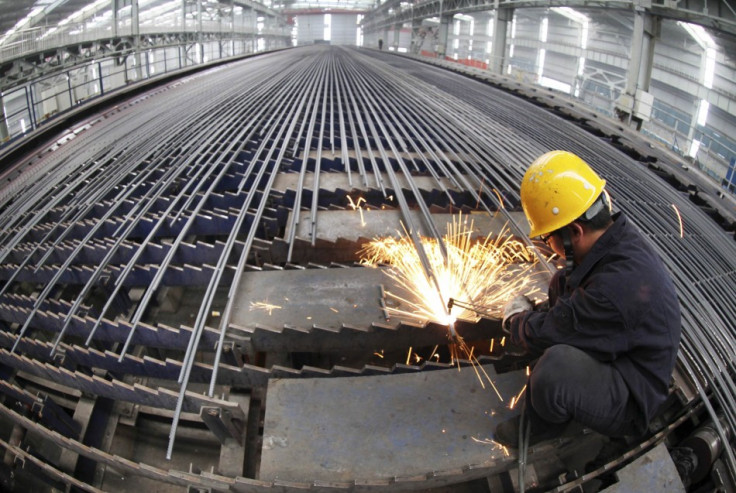China: Weak Industrial Output Data Points to Need for Fresh Stimulus

Industrial output in China grew at a much slower pace in August than expected, data on Saturday [13 September] showed, increasing hopes of fresh stimulus measures by the world's second largest economy.
The industrial production growth slowed to 6.9% from 9.0% in July while analysts had been expecting a slight decrease to 8.8%.
Another release showed that retail sales growth slowed to 11.9% from 12.2% against a market consensus of 12.1%.
Urban investment rose 16.5% in August, slower than the 17.0% growth in the previous month, that too trailing market expectations of 16.9%.
Analysts said the weekend data came as a shock and will prompt the market players to brace for additional stimulus measures by the Chinese authorities.
China has been adopting sector-specific stimulus measures in order to decrease the possibility of bad loans.
Chinese Premier Li Keqiang told the World Economic Forum that his country would avoid printing money, continue its focused spending on rail, energy and public housing projects and maintain its targeted monetary-easing programme for first-time home buyers and small companies.
Traders said the confidence in the words of the premier is not reflected in the data, and if the growth rate needs to be on track, then the authorities should keep an accommodative stance in many areas.
The August foreign direct investment data on Tuesday and the house price index for August on Thursday are the two other indicators in the coming week from China.
Dollar and yuan
The market is waiting for a slew of central bank decisions next week with the most important being the FOMC rate decision on Wednesday, which will be followed by a press conference by the Fed Chair Janet Yellen.
Any fresh cues of rate increases by the US at the events will definitely impact the dollar, which has been trading at a 14-month high against a basket of major currencies selected on a trade-weighted basis.
The Chinese yuan has also been on the rise and at a six-month high, the authorities might consider the difficulties local exporters will face due to a stronger currency.
If the People's Bank of China opts for any unscheduled policy move in order to address the current situation of increased growth challenges, that might include some measures to arrest sharper gains in the yuan.
The Chinese currency has rallied 0.22% in the week to 12 September and 1.25% since July. The yuan has been on the rise since reversing the direction from a 17-month low in April and is now trading at a six-month high.
That yuan competed is fourth straight monthly rally in August. It is up 2.3% from the April low so far and another 1.4% rally will take it back to the February high of 6.0407.
Now that even a sharply rallying dollar could not prevent a yuan rally, any negative surprise in the Fed policy will make the yuan rise faster.
© Copyright IBTimes 2025. All rights reserved.






















